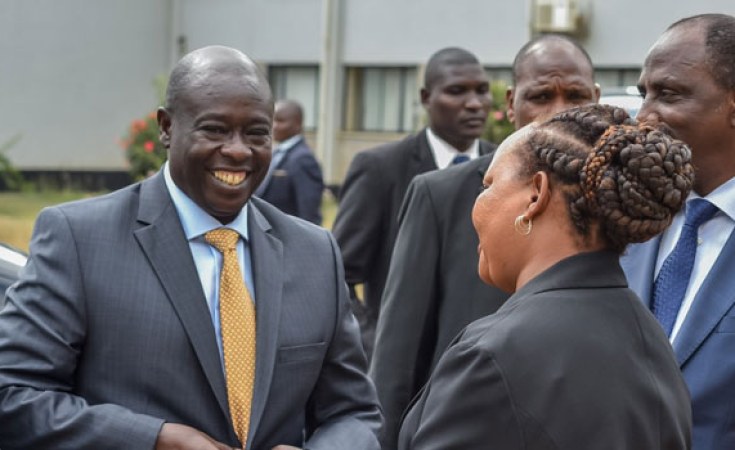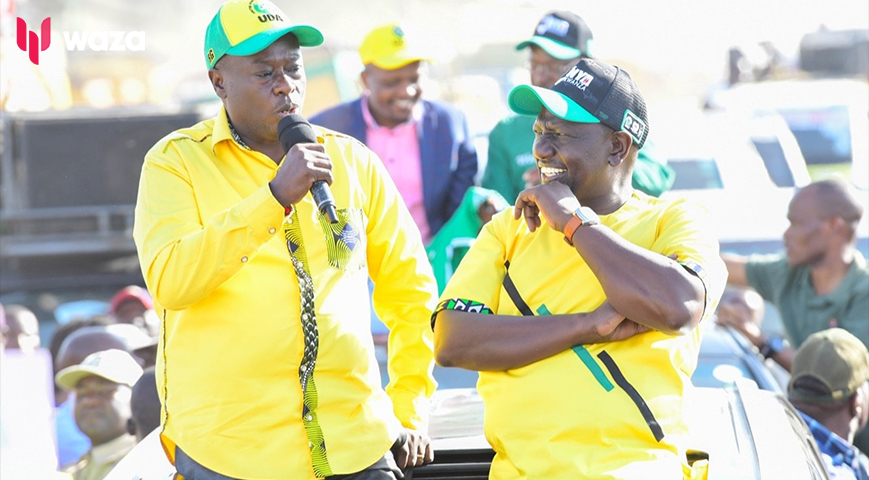President William Ruto is facing a significant political challenge as tensions rise in the Mt. Kenya region following the impeachment of his Deputy President, Rigathi Gachagua, by the National Assembly. The move has sparked widespread discontent in the region, which overwhelmingly supported Ruto in the 2022 election. Gachagua, known for his ambition to become the region's political leader, was removed in what many see as a calculated decision by the President, who no longer viewed him as an asset but a liability.
The impeachment, supported by 282 MPs—including representatives from Mt. Kenya—left Gachagua and his supporters feeling betrayed. His allies have been vocal, with some adopting the slogan “No Gachagua, No Ruto,” signaling that they see this as a personal attack on the region. Murang’a Senator Joseph Nyutu remarked that severing ties with Gachagua equates to severing ties with the entire Mt. Kenya community, a sentiment echoed by other local leaders.

Did you read this?
Ruto's decision to remain silent on the issue has fueled speculation about the future of his relationship with the region, especially as his closest allies in Parliament spearheaded the effort to remove Gachagua. Political analyst Macharia Munene suggested that Ruto had already lost the trust of many in Mt. Kenya before the impeachment and that this event only deepens the divide. Munene further argued that Gachagua's dismissal has garnered him sympathy among voters, potentially undermining Ruto’s influence in the area.
Gachagua, a skilled grassroots mobilizer, has not taken the impeachment lying down. He has traversed the region, painting himself as a victim of political machinations, and hinted at revealing the unsavory inner workings of the government. His rhetoric has stirred emotions, winning over those who feel Ruto's administration is disregarding the region’s interests. However, some political analysts, such as Mark Bichachi, believe that while Gachagua enjoys a wave of sympathy now, it may not last long after his removal.

On the other hand, some observers, including political commentator Dismus Mokua, argue that Ruto’s hold on the Mt. Kenya region remains strong, even without Gachagua. Mokua posits that Ruto had already secured the region’s support well before picking Gachagua as his running mate, and that the President could still regain political control by selecting a new deputy who aligns with the region’s interests. This could include Interior CS Kithure Kindiki, Public Service CS Justin Muturi, or National Assembly Majority Leader Kimani Ichung’wah—all prominent figures from the area.
Appointing a Kikuyu as Gachagua's replacement, however, is not without risks. Munene suggests that while this may calm some tensions, it won't fully reverse the damage done by the impeachment. Moreover, picking someone like Kindiki, who hails from Mt. Kenya East (dominated by the Embu, Meru, and Mbeere communities), might stir further rebellion in Mt. Kenya West, largely populated by the Kikuyu.

Despite these challenges, some argue that Ruto’s position remains secure. The President still enjoys the support of many elected leaders from the region, and his ability to distribute political benefits could help restore his influence. However, the growing sentiment of disillusionment among the grassroots—especially after chants of “No Gachagua, No Ruto” during recent public consultations—suggests that Ruto’s 2027 reelection bid may face significant hurdles if the rift is not healed.
Ultimately, the impeachment of Gachagua has brought to the forefront the delicate balance Ruto must strike in maintaining his grip on Mt. Kenya. His choice of Gachagua’s successor, and how he manages the fallout from the impeachment, will be crucial in determining whether he can maintain the region’s support.









